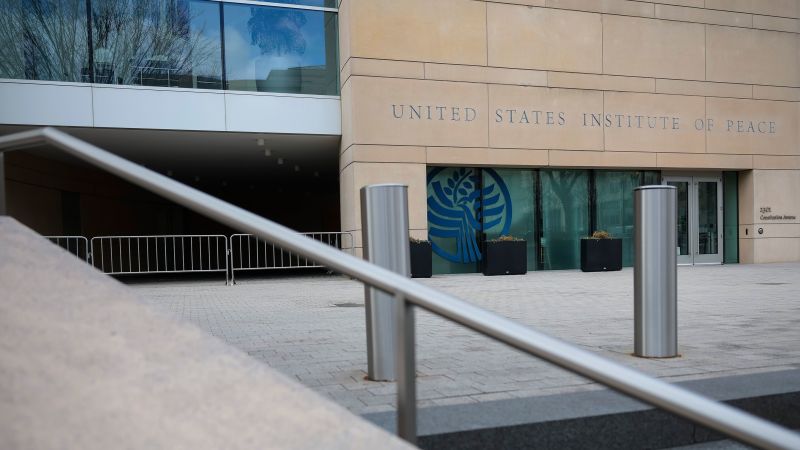Employees at the United States Institute of Peace (USIP) faced mass firings for the second time this year, following a ruling by a federal appeals court that reinstated actions taken by the Trump administration. The firings occurred on July 11, 2024, impacting staff who had been notified by personnel from the Department of Government Efficiency (DOGE) about the terminations.
The decision follows a tumultuous period for USIP, which is a nonpartisan, independent body created by Congress in 1984 to promote international peace and conflict resolution. According to Liz Callihan, a former senior adviser at USIP, the firings reflect a troubling pattern of disregard for the dedicated workforce. Callihan stated, “These actions reflect a continued pattern of DOGE’s cruel indifference toward USIP’s dedicated workforce,” further emphasizing the negative impact on critical operations in conflict resolution and peacebuilding.
The firings come after a federal judge ruled in May that the actions taken by the Trump administration to dismiss USIP’s board were unlawful. This ruling was stayed by a federal appeals court in late June, thereby allowing the administration to proceed with the recent layoffs. Callihan, who joined USIP in 2012, described the emotional toll of these changes as “devastating,” noting the constant upheaval within the organization.
Impact on Operations and Employees
The recent firings have drawn attention not only for their timing but also for their implications on the institute’s mission. Hodei Sultan, another employee affected by the layoffs, highlighted the detrimental effects of the mass firings, referring to the incidents as “horrific.” She stated, “They have a tendency to do these mass firings at night,” referring to the timing of both rounds of layoffs and calling the July terminations “Friday massacre 2.0.” Sultan, who has been with USIP since 2009 and oversaw operations within the Asia center, expressed concern about the psychological impact on both employees and communities that rely on USIP’s work.
The Trump administration has undertaken significant restructuring initiatives across federal agencies, aiming to reduce the size and scope of government operations. This includes similar layoffs at the State Department, which recently announced the termination of over 1,300 employees, including civil service and foreign service officers. These cuts are part of broader efforts to facilitate a dramatic overhaul of the agency, affecting critical operations such as counterterrorism and international aid.
As USIP employees navigate the fallout from these firings, Callihan noted, “DOGE succeeded in getting a stay of the district court’s order… Having regained control of USIP, DOGE is renewing its mistreatment of USIP employees.” The actions have raised concerns about the future of USIP’s capacity to fulfill its mission, which includes fostering peace and stability in regions affected by conflict.
Broader Implications for US Diplomacy
Sultan warned that these layoffs contribute to a broader trend of diminishing U.S. credibility on the global stage. “We’re completely self-isolating from the world,” she said, referring to the loss of U.S. influence in international relations. The firings not only affect the employees but also the numerous partners and communities that rely on USIP for support in conflict resolution.
The recent actions by the Trump administration and the ongoing restructuring efforts highlight a significant shift in U.S. foreign policy and governmental priorities. As federal agencies like USIP and the State Department undergo these changes, the long-term consequences for U.S. diplomacy and international partnerships remain uncertain.
The Supreme Court has recently backed the administration’s approach to mass firings and reorganizations, complicating efforts to challenge these decisions. The ramifications of these firings extend beyond individual employees, raising questions about the future of essential services and the U.S. role in promoting peace and stability globally.
As the situation continues to evolve, the implications for both affected employees and the broader international community will be closely monitored.
